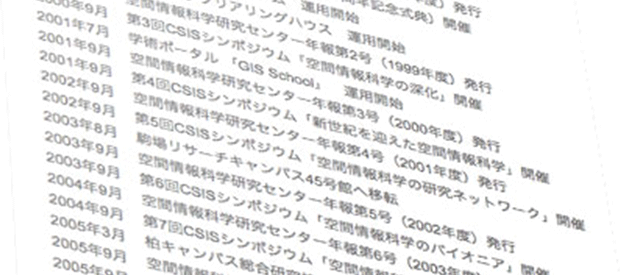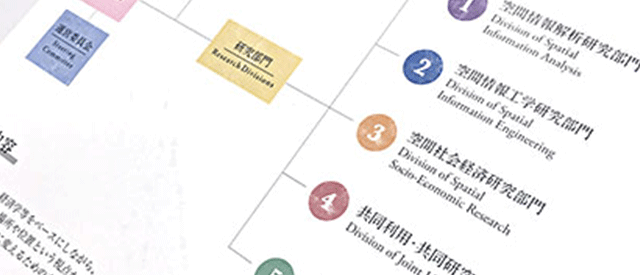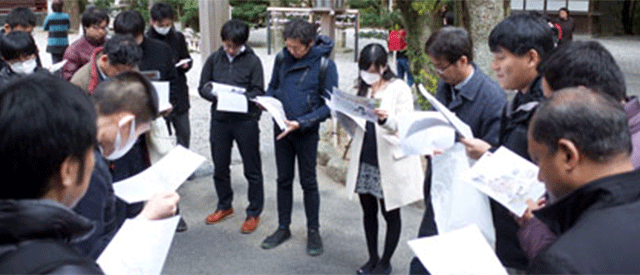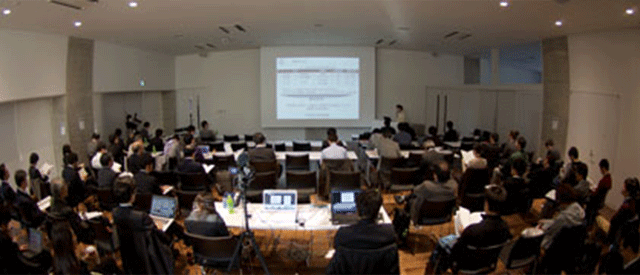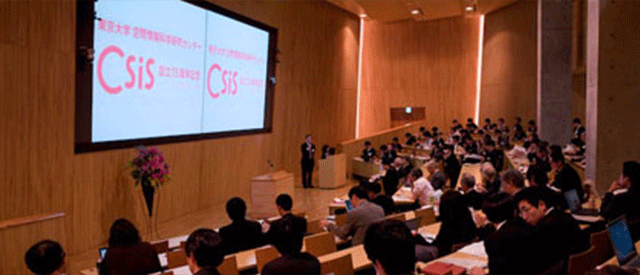Professor, Division of Spatial Information Analysis
Further information is available at https://sites.google.com/g.ecc.u-tokyo.ac.jp/ikuho-yamada/
My research specialty is urban spatial analysis, which aims at understating various phenomena occurring in urban spaces in terms of their spatial distributions and latent systems ruling them. My research covers both theoretical and application aspects of urban spatial analysis. Theoretical themes that I work on include development and improvement of spatial statistical methodology to explicitly incorporate real-world considerations of urban spaces and spatial data and development of spatio-temporal analytical methodology focusing on temporal changes in spatial distributions. As an application field, my primary interest lies in urban environments that support health and healthy lifestyles of residents.
Development and improvement of spatial statistical methodology to explicitly incorporate real-world considerations of urban spaces and spatial data
While spatial statistical methodology usually assumes infinite and uniform spaces, actual urban spaces tend to be finite and not uniform as a variety of physical and social constraints are imposed on them. In addition, spatial data to be analyzed also contain some errors, constraints, and/or ambiguities that are not explicitly considered in spatial statistical methodology. For example, movement of people and location of urban facilities are strongly influenced by street networks, so that they would be better understood in the context of a network space rather than a Euclidean space. I thus developed a series of cluster detection methods on the network space, named Local Indicators of Network-constrained ClusterS (LINCS), and some of the methods are implemented in SANET software provided by CSIS. Another research topic I currently deal with is if and how ambiguity of sample data influences on spatial statistical analysis.
Spatio-temporal analysis, spatial surveillance
As availability of spatio-temporal data has gradually increased these days, importance of spatio-temporal analysis focusing on detection and assessment of changes in spatial patterns has also increased. In particular, I am interested in spatial surveillance, which aims at quick detection of changes in spatial patterns by continuously analyzing spatial data collected over time. This type of analysis is called “prospective analysis” in comparison with “retrospective analysis,” which examines spatial data collected in a time point (or points) in the past. Spatial surveillance has been receiving much attention in relation to disease and syndromic surveillance to monitor spatial diffusion of infectious and other diseases.
Urban environments that support healthy lifestyles of residents
By applying spatial analytical methodologies explained above, I conduct various studies that attempt to capture relationships between neighborhood environments and health of residents quantitatively and then identify characteristics of environments supporting their health and healthy lifestyles. Research topics that I currently work on include, but are not limited to, relationships between neighborhood walkability and physical activities of residents as well as those between accessibility to health care services and medical behaviors of patients.
Note: Feel free to contact me if you are interested in collaborative research.
教授 空間情報解析研究部門
山田教授のページ:https://sites.google.com/g.ecc.u-tokyo.ac.jp/ikuho-yamada/都市空間で発生する様々な事象を対象に,その空間分布の特徴と背景に潜在する秩序を明らかにすることを目指す都市空間解析を専門として,理論と応用の両面から研究を行っている.理論研究では,現実の都市空間や空間データの特性を考慮した空間解析手法の提案や,空間分布の時間的な変化に着目した時空間分析,応用研究では住民の健康をサポートする都市環境などが,主なテーマである.
現実の都市空間や空間データの特性を考慮した空間解析手法の提案
一般的な空間統計学の手法は一様で無限な空間を前提に構築されているが,現実の都市空間は様々な物理的・社会的制約が課された有限の空間であり,また解析対象となる空間データにも誤差や制約,あいまいさが内在している.例えば,都市における人・モノの移動や施設立地は道路ネットワークに強い制約を受けており,そうした事象を適切に理解するためにはネットワークの制約を明示的に考慮することが必要である.こうした状況を踏まえて開発したネットワーク上の空間クラスター検出のための一連の手法,Local Indicators of Network-constrained ClusterS (LINCS)は,一部がCSISの提供するSANETでも実装されている.また,解析対象地域の辺縁部で解析結果に生じうる歪みを意味するエッジ効果や,標本にもとづく空間データのもつあいまいさが解析結果に及ぼす影響などについても研究を進めている.時空間分析,空間サーベイランス
時間情報をもつ空間データである時空間データを用いて,空間分布の時間的な変化を検出・把握するための時空間分析手法の開発を行っている.特に注目しているのは空間サーベイランスで,これは空間分布に関して随時収集・更新されるデータを連続的に分析することでその特徴の変化をいち早く検出しようというものである.こうした手法は,過去のデータを遡って解析する「後ろ向きの解析 (retrospective analysis)」に対して「前向きの解析 (prospective analysis)」と呼ばれ,感染症などの空間的な拡散を速やかに発見するための疾病サーベイランス・症候群サーベイランスなどの分野でも関心が高まっている.住民の健康をサポートする都市環境
上述のような空間解析手法を活用して,住民の健康と地域環境との係わりを計量的に捉え,住民の健康をサポートする都市環境の特徴を明らかにするための研究に取り組んでいる.特に興味を持っているトピックは,都市空間の歩きやすさ (walkability)と身体活動・健康の係わり,医療サービスへのアクセシビリティと受療行動の係わりなどである.※共同研究に関心のある方は、気軽にご連絡ください。



